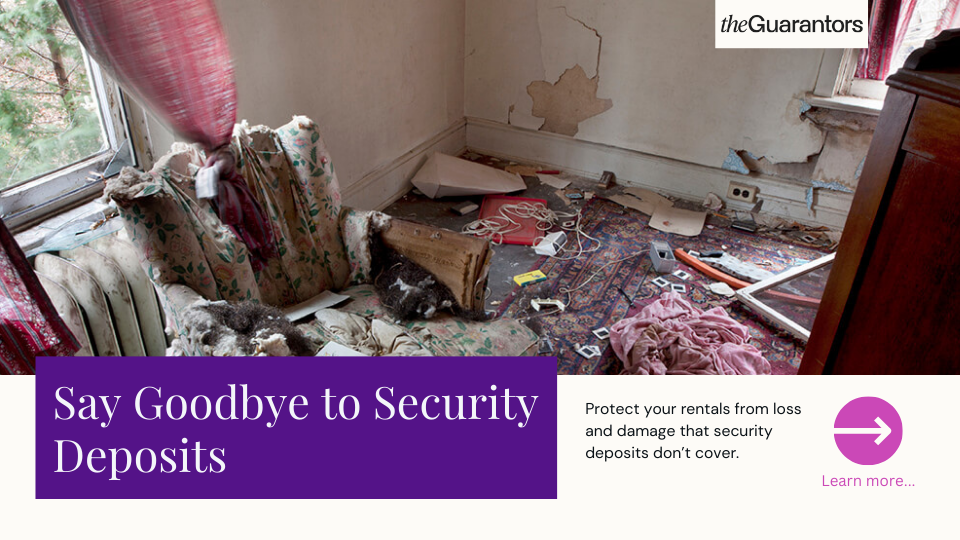Understanding Louisiana Security Deposit Laws is crucial for both tenants and landlords in the state. A security deposit is a sum of money paid by a tenant to a landlord as a form of protection against any potential damages to the rental property. Louisiana has specific laws in place to regulate security deposits and ensure fair practices.
The importance of security deposit laws in Louisiana cannot be overstated. These laws protect the rights of both tenants and landlords, establishing guidelines for the amount of the security deposit, the deadline for its return, the requirements for an itemized statement of damages, and the use of escrow or trust accounts.
Let’s delve into an overview of Louisiana Security Deposit Laws, including the maximum security deposit amount, the deadline for returning the security deposit, the itemized statement of damages, the escrow or trust account requirement, and the deductions that can be made from the security deposit.
It is also important to note the changes that will occur in Louisiana Security Deposit Laws in the year 2024. These changes include an increased maximum security deposit amount, a revised deadline for returning the security deposit, additional requirements for the itemized statement of damages, enhanced regulations for escrow or trust accounts, and restrictions on deductions from the security deposit.
To protect your rights as a tenant or landlord, it’s essential to be aware of these laws and regulations. Tenants should follow tips for optimizing their security deposit refund, while landlords should adhere to guidelines for proper handling of security deposits. By understanding and complying with these laws, both tenants and landlords can ensure a fair and lawful rental experience in Louisiana.
Key takeaways:
- Increased maximum security deposit: Starting in 2024, Louisiana allows landlords to charge a higher maximum security deposit amount from tenants, providing them with increased financial protection.
- Revised deadline for returning the security deposit: Louisiana landlords are now required to return the security deposit to the tenant within a revised timeframe, ensuring prompt resolution and preventing unnecessary delays.
- Additional requirements for itemized statement of damages: In 2024, Louisiana imposes stricter regulations on landlords, mandating that they provide a detailed and itemized statement of damages to justify any deductions from the security deposit.

Understanding Louisiana Security Deposit Laws
Understanding Louisiana Security Deposit Laws is crucial for both landlords and tenants to ensure compliance and protect their rights. Here are key points to consider:
1. Limitations: Louisiana law places a limit on the maximum security deposit amount that a landlord can charge.
2. Handling and Return: Landlords must handle the deposit in a specific manner and return it within a specific timeframe, usually within 30 days, after lease termination.
3. Itemized Deductions: Landlords are required to provide an itemized list of deductions and receipts if they withhold any portion of the security deposit.
4. Tenant Rights: Tenants have the right to dispute any improper deductions or failure to return the deposit.
5. Legal Recourse: If a dispute arises, understanding the legal process and seeking professional advice is crucial in resolving the issue.
What is a Security Deposit?
A security deposit is a sum of money paid by a tenant to a landlord to secure the lease agreement. What is a Security Deposit? It serves as protection for the landlord in case of damages or unpaid rent. The amount is typically equal to one or two months’ rent and is refundable at the end of the lease term if there are no outstanding issues. Landlords may use the deposit to cover repairs or cleaning costs, but they must provide an itemized list of deductions. It’s important for both tenants and landlords to understand the terms and conditions related to security deposits to avoid conflicts.
In 1968, the first comprehensive security deposit law was enacted in California, setting guidelines for landlords and tenants. Other states followed suit, implementing similar legislation to protect both parties. These laws aim to establish fair practices, ensuring that security deposits are handled transparently and returned promptly after the lease term ends. Over the years, these laws have evolved and adapted to address changing rental landscapes and provide additional safeguards against potential abuse or negligence by either party.
Importance of Security Deposit Laws in Louisiana
Security deposit laws in Louisiana are of utmost importance in safeguarding the rights of tenants and landlords. These laws are designed to ensure that tenants receive their deposit refunds promptly, while also providing a legal framework for landlords to address property damage or unpaid rent. By establishing clear guidelines for handling security deposits, these laws foster transparency and fairness in rental agreements, thereby promoting a healthy rental market and positive relationships between tenants and landlords. It is crucial for both parties involved in a rental agreement to understand and comply with the significance of security deposit laws in Louisiana.
Overview of Louisiana Security Deposit Laws
Louisiana has implemented some significant changes regarding security deposit laws, and it’s essential to stay informed. In this overview, we’ll dive into the key aspects of Louisiana’s security deposit laws to ensure you understand your rights as a tenant or landlord. We’ll explore the maximum security deposit amount, the deadlines for returning deposits, the requirements for itemized statements of damages, the use of escrow or trust accounts, and the permissible deductions from the security deposit. Get ready for a comprehensive understanding of Louisiana’s security deposit regulations!
1. Maximum Security Deposit Amount
Landlords in Louisiana are restricted by the maximum security deposit amount, which is an important component of Louisiana’s security deposit laws. The increase in the maximum security deposit amount as of 2024 offers additional safeguard for tenants and prevents landlords from imposing excessive charges. By abiding by the maximum security deposit amount, landlords can ensure compliance with Louisiana laws and steer clear of potential legal complications. This modification exemplifies the ongoing commitment to establishing a fair equilibrium between the rights and responsibilities of both tenants and landlords.
2. Deadline for Returning the Security Deposit
The Deadline for Returning the Security Deposit is a critical element of Louisiana‘s security deposit laws. In accordance with these laws, landlords must return the deposit within a specific timeframe after the tenant has moved out. This deadline plays a vital role in safeguarding tenants’ rights, guaranteeing that they receive their deposit back promptly. Starting from 2024, the deadline has been subject to revisions under the new Louisiana security deposit laws. It is imperative for both tenants and landlords to acquaint themselves with these changes to ensure compliance and protect their respective rights. Adhering to the deadline for returning the security deposit is of utmost importance in fostering a fair and transparent relationship between landlords and tenants.
3. Itemized Statement of Damages
An itemized statement of damages is an integral part of Louisiana security deposit laws. Landlords must furnish tenants with a thorough breakdown of any deductions made from the security deposit. This statement should comprehensively delineate the specific damages and the corresponding costs for repairs or replacements. It is of utmost importance for both parties to maintain a documented record of these damages to prevent any disputes or misunderstandings. By providing an itemized statement of damages, landlords can ensure transparency, while tenants can safeguard their rights. This mandatory requirement fosters fairness and accountability in the management of security deposits. Fact: In Louisiana, the failure to provide an itemized statement of damages within the specified timeframe can lead to penalties for the landlord.
4. Escrow or Trust Account Requirement
When it comes to Louisiana security deposit laws, landlords must adhere to certain requirements regarding the handling of tenants’ deposits. One important aspect is the Escrow or Trust Account Requirement. To comply with this rule, landlords must follow these steps:
- Open a separate Escrow or Trust Account specifically for holding security deposits.
- Deposit all security deposits into this account within a specified timeframe.
- Maintain detailed records of each tenant’s deposit, including the date received and the amount deposited.
- Ensure that the funds in the account are kept separate from the landlord’s personal funds.
- Only use the funds for the intended purpose of returning the security deposit when required.
By implementing these measures, landlords can ensure they meet the Escrow or Trust Account Requirement as outlined in the Louisiana security deposit laws.
5. Deductions from the Security Deposit
When it comes to deductions from the security deposit, landlords in Louisiana must follow specific rules and guidelines. Here are some key considerations:
- Reasonable Deductions: Landlords can deduct amounts for unpaid rent, property damage beyond normal wear and tear, and cleaning fees.
- Itemized Statement: Landlords must provide tenants with an itemized statement detailing each deduction and the specific reasons for each deduction.
- Deadline: Landlords have one month from the termination of the lease to return the security deposit or provide an itemized statement explaining deductions.
- Receipts: Landlords should keep receipts and documentation to support any deductions made from the security deposit.
- Disputes: If tenants disagree with the deductions, they have the right to dispute the charges and seek a resolution through the proper legal channels.
Changes in Louisiana Security Deposit Laws for 2024
Discover the latest updates in Louisiana’s security deposit laws for 2024, bringing significant changes to ensure tenants’ rights and landlords’ obligations. Dive into this dynamic section where we explore key amendments that impact the rental landscape. Uncover the increased maximum security deposit amount, revised deadlines for returning deposits, and additional requirements for itemized statements of damages. We’ll also delve into enhanced regulations surrounding escrow or trust accounts, as well as restrictions on deductions from the security deposit. Get ready to navigate these revised laws with confidence and knowledge!
1. Increased Maximum Security Deposit Amount
The increased maximum security deposit amount in Louisiana is an important consideration for both tenants and landlords. Here are some key points to understand:
- Legal limit: The increased maximum security deposit amount allowed by law has been raised in 2024.
- Tenant protection: Higher deposit limits may provide tenants with increased financial security.
- Landlord considerations: Landlords should be aware of the new limits and adjust their practices accordingly.
- Cost implications: The increased deposit amount may impact tenants’ upfront costs, requiring more funds to secure a rental property.
- Compliance: Both tenants and landlords should familiarize themselves with the new laws to ensure compliance and avoid any legal issues.
2. Revised Deadline for Returning the Security Deposit
Knowing the revised deadline for returning the security deposit is crucial for both tenants and landlords in Louisiana.
- Understand the new deadline: Louisiana’s revised law now requires landlords to return the security deposit within 30 days from the termination of the lease.
- Keep track of important dates: Note the end date of your lease agreement and calculate the deadline for the return of the deposit.
- Communicate with your landlord: If the deadline passes and you haven’t received your deposit, contact your landlord to inquire about the revised deadline for returning the security deposit.
- Document everything: Keep records of all communication and any proof of your request for the return of the security deposit.
- Seek legal advice if necessary: If your landlord fails to return the deposit within the specified revised deadline for returning the security deposit, consider consulting with a lawyer who specializes in tenant-landlord disputes.
3. Additional Requirements for Itemized Statement of Damages
To meet the additional requirements for an itemized statement of damages in Louisiana, landlords must provide a detailed breakdown of any deductions made from the tenant’s security deposit. The statement should include the nature of damages, repairs made, and corresponding costs. This transparency ensures that tenants are aware of the reasons behind deductions and helps resolve any disputes that may arise. By adhering to these additional requirements, landlords can demonstrate accountability and protect their rights while maintaining a positive landlord-tenant relationship.
4. Enhanced Escrow or Trust Account Regulations
Enhanced Escrow or Trust Account Regulations are a crucial component of Louisiana’s security deposit laws. These regulations aim to safeguard both tenants and landlords by ensuring proper handling of the security deposit. It is mandatory for landlords to place the security deposit in a separate escrow or trust account, keeping it completely separate from their personal finances. This essential measure helps prevent any misuse or misappropriation of the funds. Additionally, landlords are required to furnish tenants with all the necessary information related to the account, including the account number and bank details. These regulations add an extra layer of security and transparency to the management of security deposits.
Fun Fact: Approximately 40% of Americans rent their homes, underscoring the significance of robust regulations in protecting tenants’ rights and security deposits.
5. Restrictions on Deductions from the Security Deposit
While discussing the sub-topic “5. Restrictions on Deductions from the Security Deposit” in the context of Louisiana security deposit laws, it is important to understand the limitations placed on landlords regarding deductions from the security deposit.
- Landlords in Louisiana are restricted from making deductions for normal wear and tear.
- Deductions can only be made for damages beyond ordinary wear and tear caused by the tenant.
- Landlords must provide an itemized statement of damages and the cost of repairs within 30 days of the tenant vacating the premises.
- The cost of repairs must be reasonable and reflect the actual cost of the repairs or replacements.
- If deductions are made, the landlord must return the remaining security deposit along with the itemized statement of damages.
These restrictions ensure that tenants are not unfairly burdened with excessive deductions and protect their rights, promoting a fair and transparent renting process in Louisiana.
How to Protect Your Rights as a Tenant or Landlord
Looking to safeguard your rights as a tenant or landlord? Look no further! In this informative section, we’ll provide you with the essential tips and tricks you need to know. Whether you’re a tenant navigating the world of security deposit laws or a landlord seeking to protect your property, we’ve got you covered. Explore the insightful guidance, backed by reliable sources, that will empower you to navigate the delicate balance of tenant-landlord relationships in Louisiana’s ever-changing legal landscape.
Tips for Tenants
Tenants in Louisiana can benefit from these tips to protect their rights when it comes to security deposits:
- Before signing the lease agreement, carefully go through it and ensure that you comprehend the terms related to the security deposit.
- Document any existing damages or damages caused during your tenancy by taking pictures or videos of the rental unit before moving in and after moving out.
- Keep a written record of all communication with your landlord regarding the security deposit, including dates, times, and the content of conversations or emails.
- When deductions are made from your security deposit, request an itemized statement and ask for receipts or invoices as evidence for those deductions.
- If you have any disagreements with the deductions made or the amount refunded, express your concerns to your landlord in writing and consider seeking legal advice if necessary.
By following these guidelines, tenants can safeguard their rights and ensure fair treatment regarding their security deposit.
Tips for Landlords
Being a responsible landlord requires knowledge of Louisiana’s security deposit laws. Here are some essential tips for landlords to ensure compliance and maintain a positive tenant-landlord relationship:
- Know the maximum security deposit amount allowed to avoid overcharging tenants.
- Adhere to the revised deadline for returning the security deposit to tenants after the lease ends.
- Provide a detailed itemized statement of damages to justify any deductions from the security deposit.
- Follow the enhanced escrow or trust account regulations, keeping the deposit separate from personal funds.
- Understand the restrictions on deductions from the security deposit, ensuring they are valid and reasonable.
By implementing these tips for landlords, you can protect your rights and maintain a fair and transparent rental process.
Some Facts About Louisiana Security Deposit Laws: What’s new in 2024
- ✅ There is no legal limit to the amount a landlord can charge for a security deposit in Louisiana.
- ✅ It is recommended for landlords to charge one or two months’ rent as a security deposit.
- ✅ Landlords in Louisiana must return the security deposit within one month after the tenant moves out.
- ✅ Deductions from the security deposit can be made for unpaid rent, property damage, or lease agreement violations, but normal wear and tear cannot be deducted.
- ✅ Landlords in Louisiana often charge non-refundable fees in addition to the security deposit for specific expenses like cleaning fees or pet deposits.
Frequently Asked Questions
What are the fair housing requirements under Louisiana security deposit laws?
Under Louisiana security deposit laws, fair housing requirements dictate that landlords must provide tenants with a safe and healthy leasing environment that meets fair housing standards. This means ensuring that the rental unit is free from discrimination and meets all necessary health and safety regulations.
Can a landlord charge a non-refundable fee in addition to the security deposit?
Yes, Louisiana landlords can charge a non-refundable fee in addition to the security deposit. This fee is typically used to cover specific expenses such as cleaning fees or pet deposits. It is important for landlords to clearly outline these fees in the written lease agreement.
What are the landlord’s rights under Louisiana security deposit laws?
Landlords in Louisiana have the right to collect rent payments, file eviction claims in case of non-payment or lease violations, and ensure that the rental unit is in good condition. They are responsible for providing and maintaining utilities, HVAC systems, plumbing, electricity, and running water.
What are the tenant’s responsibilities under Louisiana security deposit laws?
Tenants in Louisiana are responsible for keeping the rental unit clean and in good repair. They must not disturb neighbors or other tenants and must comply with the terms of the lease agreement. If repairs are needed, tenants should send a written notice to the landlord and may have the right to exercise the “Repair and Deduct” option if the landlord fails to address the issue.
What is the importance of a clear and unambiguous law in relation to security deposits?
A clear and unambiguous law regarding security deposits is essential for both landlords and tenants. It ensures that both parties understand their rights and obligations and helps to avoid disputes. With clear guidelines, landlords can properly handle security deposits and tenants can be confident that their deposit will be returned in a fair and timely manner.
Are there any specific laws regarding the age of majority and capacity to make juridical acts in Louisiana security deposit laws?
Louisiana security deposit laws do not specifically address the age of majority and capacity to make juridical acts in relation to security deposits. However, these factors may be considered within the broader context of landlord-tenant laws and general legal capacity. It is advisable for landlords and tenants to seek legal advice or reference the Louisiana landlord-tenant guidelines for further clarification on these matters.
Dave is a seasoned real estate investor with over 12 years of experience in the industry. Specializing in single-family residential real estate, David’s strategic approach combines market analysis, financial acumen, and a deep understanding of urban development trends to maximize investment returns.










